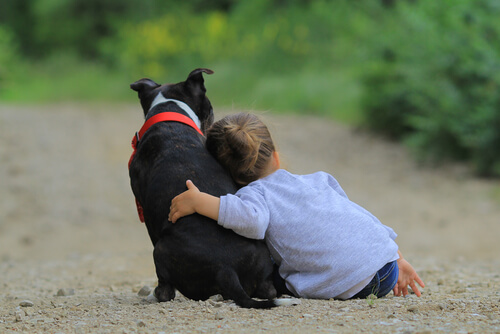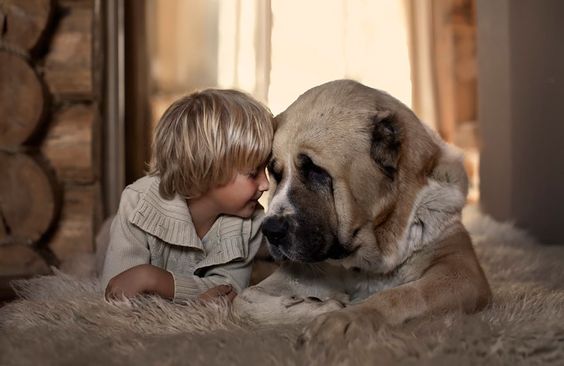The Bond Between Children and Pets

One of the most famous and incredible French writers, Anatole France, once said that “until one has loved an animal a part of one’s soul remains unawakened.” Children and their pets are capable of creating a special bond that nothing and nobody could ever break.
It’s true that love is one of the most wonderful feelings that the human heart can experience. But love isn’t just for humans. Animals are also capable of feeling with as much passion and intensity as we are.
The importance of the bond between children and animals
Because the unconditional love of an animal is such an amazing feeling, it’s important to consider adopting a pet that can provide your children with values, happiness, and an important emotional bond. And it’s also a good way to start giving them more and more responsibilities.
“Who can believe that there is no soul behind those luminous eyes!”
-Theophile Gautier-

The Affinity Foundation is one of the organizations that has most studied and defended the advantages of allowing children to grow up with pets. This organization has done many studies that have demonstrated the importance and benefits of having a bond with an animal.
Countless benefits can be drawn from their conclusions, as pets tend to improve the quality of life of the whole family, reduce stress and depression, and promote physical and mental balance.
The relationship between children and pets
According to the studies done by the Affinity Foundation, pets allow our children to feel more complete, happy, autonomous, responsible, and affectionate. Let’s take a look at how having a pet can improve the educational and social development of children:
- When a child has a pet that they love, they tend to be responsible for caring for and feeding them in an autonomous, altruistic, and generous way.
- Feeling responsible for and taking care of an animal will greatly improve the child’s self-esteem. They will feel useful, know that they’re doing a good job, and gain a lot of confidence in their abilities.
- A good environment that facilitates a relationship between the child and their pet will improve the child’s integration into the family. An animal can be a very strong uniting force between family members.
- Learning to respect the pet from a young age will make the child aware of the need to respect other people, their surroundings, and the environment.
- Children who know that they’re doing a good job taking care of their pet will feel more competent and secure in themselves. As such, they’ll feel more responsible and have more emotional balance.
- A pet is an excellent source of support for children during hard times. The unconditional companionship of an animal can alleviate sadness and fear. In fact, 46% of children consider their pet as a strong source of emotional support.
“There is no psychiatrist in the world like a puppy licking your face.”
-Ben Williams-

How to facilitate the bond between children and pets
To help your child create a bond with their pet, keep the following in mind:
- It can’t be forced. It has to arise naturally. However, if the child takes on responsibilities like feeding the animal, giving them clean water, or bathing them, the bond will likely start to grow.
- When taking your pet for a walk, it’s important for the child to come along and participate in the experience. This will also help the bond to arise naturally.
- On top of being a responsibility, the child should see the pet as a source of fun and entertainment. This way, they’ll forge an unbreakable and enriching bond.
Other interesting facts about children and pets
According to studies done by the Affinity Foundation, people who have pets during childhood tend to have fewer problems in their interpersonal relationships, be more happy and motivated, and feel less threatened.
It’s a good idea to help your child develop an unbreakable bond with their pet, because it will leave a mark on them forever and make them feel happier and more complete.
This text is provided for informational purposes only and does not replace consultation with a professional. If in doubt, consult your specialist.








